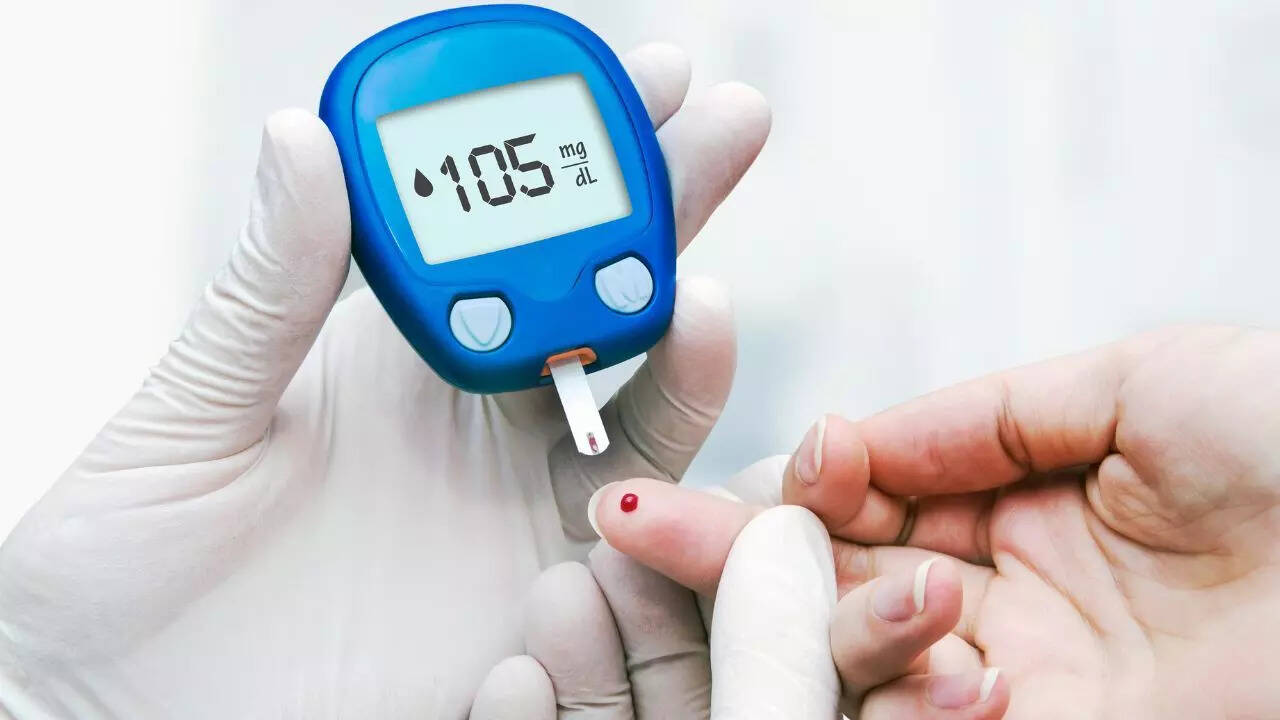Apple cider vinegar (ACV) is a fermented apple-based liquid widely used in kitchens around the world, not just for cooking but also as a natural remedy. Known for its anti-inflammatory and antioxidant properties, ACV has gained attention for its potential health benefits. Research, including a study in Frontiers in Clinical Diabetes and Healthcare, found that daily intake of 30 mL of ACV for 12 weeks improved cholesterol levels in people with type 2 diabetes. Preliminary evidence suggests it may also help support healthy blood sugar, blood pressure, weight management, and skin health, making it a versatile addition to daily routines.
Use apple cider vinegar for controlling blood sugar, managing blood pressure, and other health issues

Diabetes
Apple cider vinegar may help lower blood sugar levels, making it a potentially useful supplement for people with diabetes. Its effects are thought to come from slowing gastric emptying—the rate at which the stomach releases food into the intestines—and reducing the breakdown of carbohydrates into sugar. This mechanism can help prevent rapid spikes in blood glucose levels. Studies suggest that consuming small amounts of ACV before meals may lower fasting blood sugar and hemoglobin A1c (HbA1c), which measures average blood sugar over several months. Regular use may support overall blood sugar management, though it should be combined with a healthy diet and lifestyle for best results.
High cholesterol
ACV may also play a role in improving cholesterol levels. Research indicates that taking apple cider vinegar for several weeks can increase high-density lipoprotein (HDL, or “good”) cholesterol and decrease triglyceride levels, while having minimal effect on low-density lipoprotein (LDL, or “bad”) cholesterol. HDL is beneficial for heart health, helping remove excess cholesterol from the bloodstream. For individuals with elevated total cholesterol or type 2 diabetes, incorporating ACV may support healthier blood fat profiles. Although it is not a substitute for medical treatment, ACV can be part of an overall strategy for cardiovascular wellness.
Hypertension
Some evidence suggests that ACV may have a modest effect on blood pressure. Adults who used apple cider vinegar for several weeks experienced lower systolic blood pressure, along with reduced body weight and measurements. These changes could contribute to improved cardiovascular health. While the research is promising, additional studies are necessary to confirm the direct effects of ACV on blood pressure and to determine safe and effective dosing strategies. Consistent use, combined with a balanced diet, exercise, and other lifestyle measures, may enhance overall heart health.
Overweight and obesity
ACV may aid weight management by promoting a feeling of fullness, which helps reduce calorie intake. This is largely due to its ability to slow gastric emptying, allowing food to remain in the stomach longer. Studies on individuals with overweight or obesity have shown that daily consumption of ACV over several weeks can lead to measurable reductions in body weight and body mass index (BMI). Some participants notice changes within a few weeks. While ACV is not a magic solution for weight loss, incorporating it as part of a balanced diet and regular physical activity may support gradual and sustainable results.
Eczema
Apple cider vinegar may provide some benefit for skin conditions such as atopic dermatitis, commonly known as eczema. Its natural acidity and antibacterial properties may help inhibit the growth of Staphylococcus aureus, a bacteria that can trigger flare-ups. However, ACV does not appear to strengthen the skin barrier and can cause irritation or burns in sensitive individuals. Anyone using ACV on the skin should dilute it and perform a patch test first. While it may help reduce bacterial growth on affected areas, its use should be combined with other skin care strategies and medical advice when managing eczema.
How to use apple cider vinegar safely
ACV is available in liquid form, tablets, and gummies. For internal use, small amounts diluted in water before meals are generally considered safe for up to 12 weeks. When used topically, it should be diluted to prevent skin irritation. Long-term or excessive consumption can contribute to low potassium levels or affect bone health. Overall, ACV can be a helpful natural supplement for certain conditions, but it should be used thoughtfully and as part of a balanced approach to health.Disclaimer: This article is for general informational purposes only and is not a substitute for professional medical advice, diagnosis, or treatment. Always seek the guidance of a qualified healthcare provider regarding any medical condition or lifestyle change.Also Read: Dropped head syndrome in gamers: Risks of excessive smartphone use in young adults











